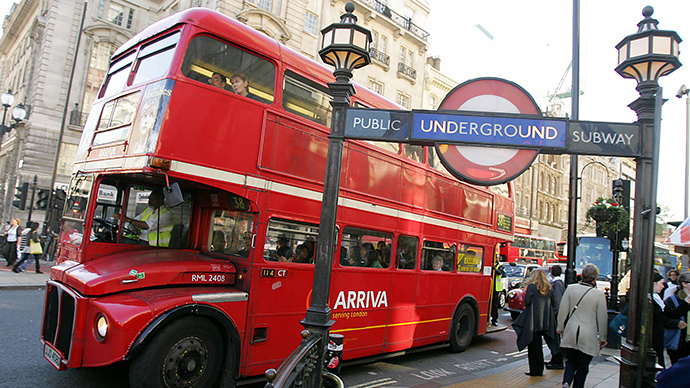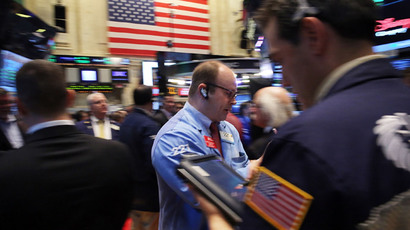EU sanctions on Russian finance could cripple London

The EU plans to widen economic sanctions against Russia, but London, already on rocky ground with the EU, would be hit the hardest if tougher restrictions are slapped on Russia’s big state banks.
If agreed, EU sanctions would apply to all Russian banks that are more than 50 percent state-owned. Sberbank, VTB, the country’s two largest lenders, are both listed on the London Stock Exchange and have offices there.
If Russian banks get hit the ripples will be felt across the English Channel and in the heart of the world’s financial center- the City of London.
Between 2004 and 2008, Russia’s top two lenders raised $16.4 billion in floatations, and a ban would cost London hundreds of millions of pounds, The Times reports.
“The real question is, why is so much of the burden — even if it is not a massive one — falling on the UK? France and Germany might be talking tougher, but they do not quite seem to be following through with actions,” Raoul Ruparel, a senior analyst at Open Europe, a think-tank, told The Times.
London has more than 50 companies that have operations in Russia on its $3.6 billion Stock Exchange. Russian companies often choose London for their initial public offerings, and borrow debt from London-based banks.
“The impact on Russia would likely be mixed. It would force companies to shift to much shorter financing and force the state to back them up even further. Russia might also respond to try to keep capital in Russia inside some of these companies. In any case, there would be a hit but it wouldn’t be a killer blow,” Ruparel said.

The new proposed sanctions also include a ban on ‘sensitive technologies’, arms sales and energy, which Germany, France, and Italy are closer tied to. But Britain has the most intimate financial relationship with Moscow.
“Much of it all depends on international cooperation. If other countries join in on shutting off capital markets then it could be effective. But €7.5 billion of bonds to be sold elsewhere is not a huge amount if Singaporean and Hong Kong markets are still open to them,” Ruparel explained.
In preparation for more Western sanctions, some of Russia’s biggest players have been setting up shop in the East. Gazprom, the country’s largest producer of natural gas, set up Singapore listing in June.
Russia’s ambassador to Britain, Alexander Yakovenko, said expanding sanctions to major banks in Moscow will have a contagion effect on London, and the world economy.
More sanctions “will trigger a long anticipated endgame of the present global crisis”, and called them “illegal, unreasonable and counter-productive," said Yakovenko.
In Brussels on Thursday, ambassadors discussed more sanctions against Russia over its involvement in Ukraine, and announced they extended the sanctions black list to 15 individuals and 18 companies.
The UK is already on the brink of making a very public exit from the European Union after Jean-Claude Juncker was appointed President at the European Commission, much to UK Prime Minister David Cameron’s annoyance.The UK has threatened to leave the EU, and will hold a referendum on the matter in 2017.














